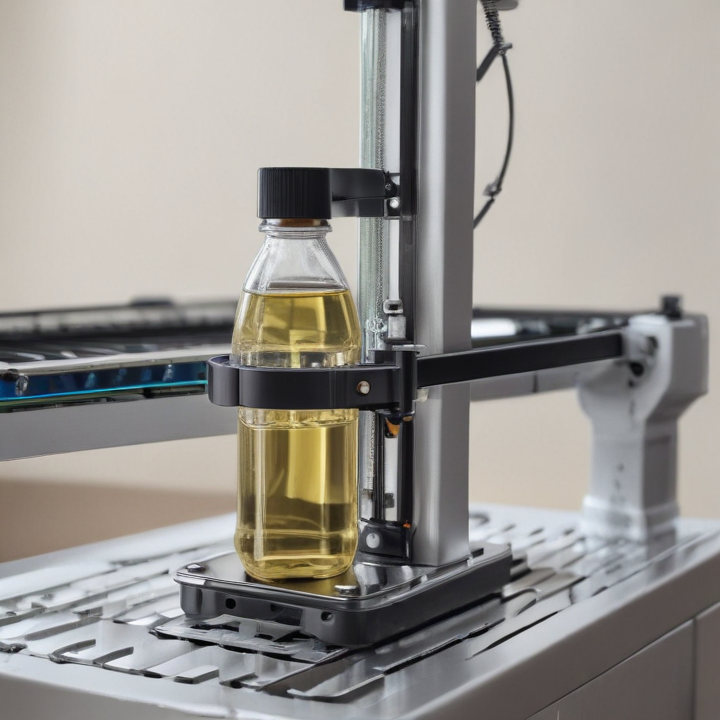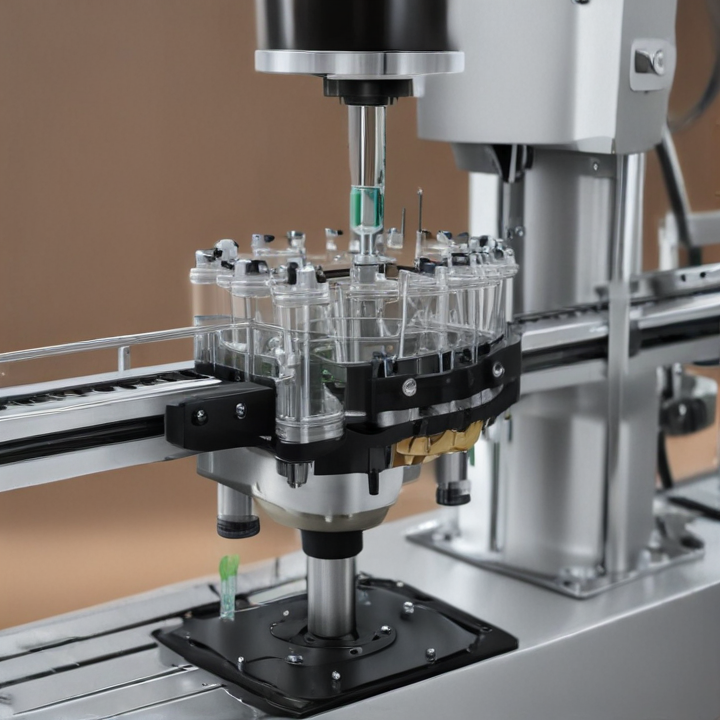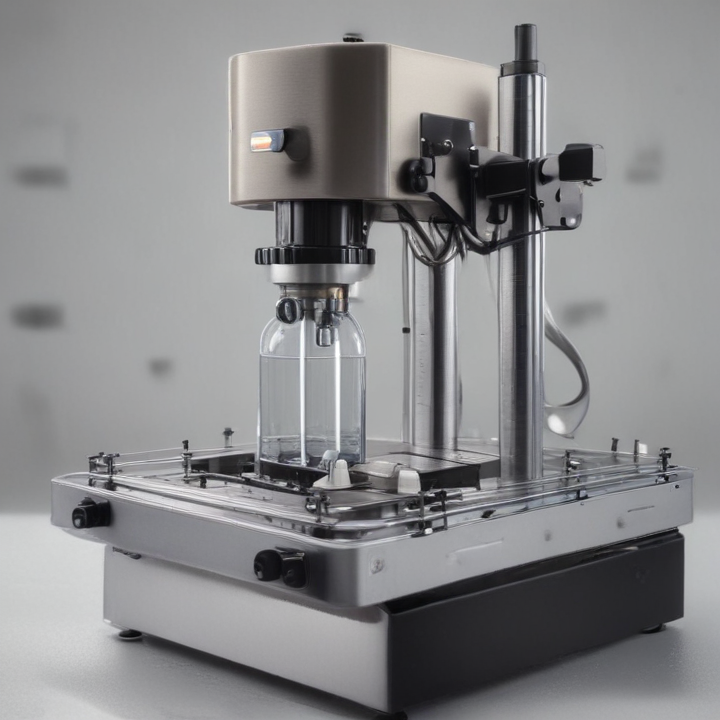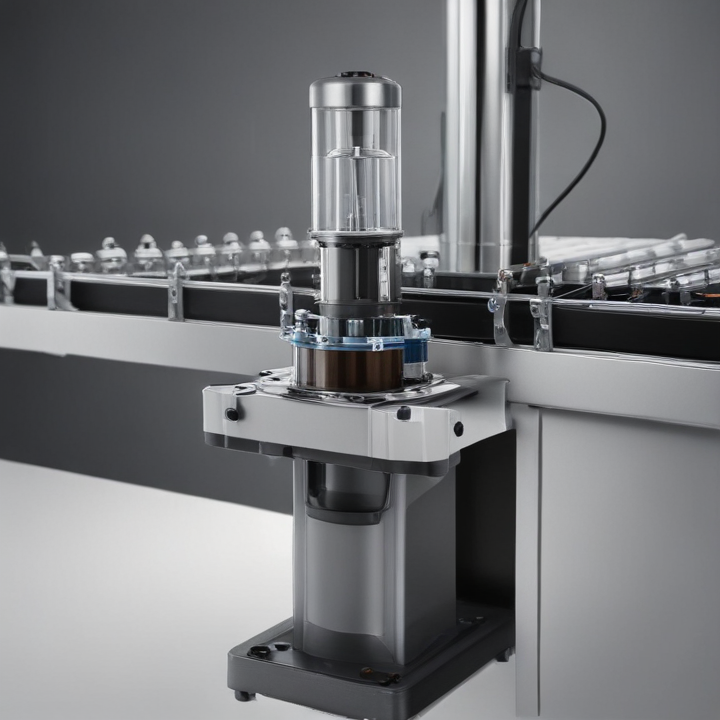List Technical Parameters of “automatic bottle capping machine”
The automatic bottle capping machine is a vital equipment used in various industries, including pharmaceutical, food and beverage, and cosmetic. It efficiently caps bottles by ensuring a secure seal, preventing leakage or contamination. This equipment has several technical parameters that define its performance and effectiveness.
1. Production Capacity: The production capacity of the machine refers to the number of bottles it can cap within a specific time frame. It is typically measured in bottles per minute (BPM) or bottles per hour (BPH). The machine’s capacity can vary depending on the size and type of bottles being capped.
2. Bottle Size Range: The machine should be able to accommodate a wide range of bottle sizes, ranging from small vials to large containers. It should have adjustable capping heads or tools to ensure compatibility with different bottle diameters and heights.
3. Capping Speed: The capping speed refers to the rate at which the machine applies caps onto the bottles. It is usually expressed in RPM (Rotations Per Minute) or CPM (Cycles Per Minute). Higher capping speeds are desirable as they increase productivity and efficiency.
4. Cap Type: The machine should be designed to handle various types of caps such as screw caps, flip-top caps, snap-on caps, or push-pull caps. It should have interchangeable capping heads or tooling systems to accommodate different cap types.
5. Torque Adjustment: The torque adjustment feature allows the operator to adjust the amount of force exerted on the cap during the capping process. This is crucial as different caps require different torque levels to ensure proper sealing without damaging the container.
6. Cap Placement: The machine should have a precise cap placement mechanism to accurately position the cap on the bottle. This ensures consistency and prevents misalignment or crooked caps.
7. Control System: The machine should have an intuitive control system, typically operated through a human-machine interface (HMI). It should provide options to adjust settings, monitor production, and handle alarms or error messages efficiently.
8. Material Compatibility: The machine should be designed to handle a wide range of bottle materials such as glass, plastic, or metal. This ensures versatility and adaptability to different manufacturing requirements.
9. Conveyor System: An efficient conveyor system ensures a smooth flow of bottles through the capping process. It should be adjustable to accommodate different bottle sizes and synchronized with the capping mechanism.
10. Safety Features: The machine should incorporate various safety features, such as emergency stop buttons, safety guards, and interlock systems, to protect operators and prevent accidents.
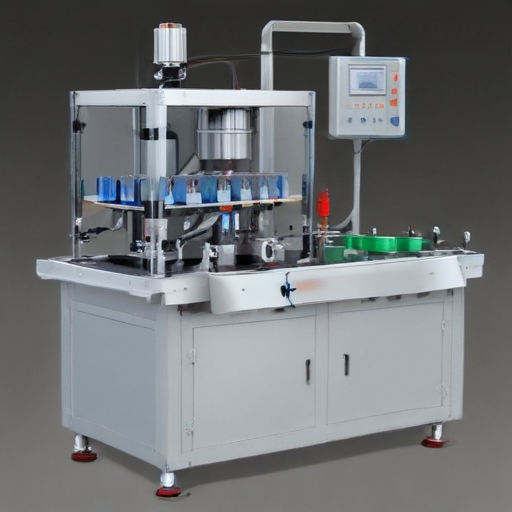
List Product features of “automatic bottle capping machine”
The automatic bottle capping machine is a highly efficient and innovative device designed to streamline the bottling process and ensure accurate and secure closure. Featuring advanced technology and precision engineering, this machine offers a multitude of product features that cater to the needs of various industries, such as pharmaceuticals, beverages, cosmetics, and chemicals.
One of the standout features of this machine is its high-speed operation. With a capability to cap a large number of bottles per minute, it significantly boosts productivity and reduces downtime. Equipped with intelligent sensors, it ensures that the capping process is smooth and error-free, minimizing the risk of product wastage and enhancing output efficiency.
Another notable feature is its adaptability to various bottle sizes and shapes. The machine includes customizable changeover parts that facilitate quick and easy adjustment between different containers, accommodating diverse packaging requirements. Whether it’s round, square, or irregularly shaped bottles, this capping machine can securely seal them without compromising on quality.
Furthermore, the automatic bottle capping machine boasts an ergonomic design that prioritizes user convenience and safety. It incorporates user-friendly controls and a user interface that enables operators to set parameters and monitor the capping process with ease. Safety features such as emergency stop buttons and protective enclosures ensure the well-being of operators and prevent accidents or injuries.
The machine also offers versatility in capping options. It supports various types of closures, including screw caps, snap caps, flip-top caps, and pump caps. This flexibility enables businesses to cater to different product categories and meet market demands effectively.
Moreover, the automatic bottle capping machine features a robust construction using high-quality materials, ensuring durability and reliability, even in demanding production environments. Its low maintenance requirements and minimal wear and tear contribute to an extended lifespan of the machine, reducing long-term operating costs.
To augment efficiency, the machine can be integrated into existing production lines seamlessly. It can synchronize with upstream and downstream equipment, such as filling machines and labelers, optimizing overall productivity and minimizing bottlenecks.
In summary, the automatic bottle capping machine revolutionizes the bottling process with its advanced features, including high-speed operation, adaptability to different bottle sizes, user-friendly design, versatility in closure options, robust construction, and seamless integration capabilities. By investing in this innovative machinery, businesses can enhance operational efficiency, achieve consistent and secure bottle closures, and accelerate their market presence.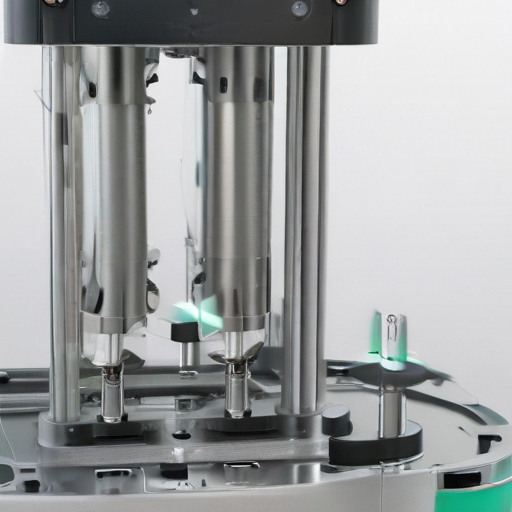
List Application of “automatic bottle capping machine”
Automatic bottle capping machines are widely used in various industries for efficient and precise bottle sealing. Some of the key applications include:
1. Beverage industry: In the beverage industry, particularly in bottling plants, automatic bottle capping machines are used to securely seal bottles containing carbonated beverages, juice, water, and other liquid products. These machines ensure the airtight sealing of the bottles, preventing leakage and maintaining the product’s freshness.
2. Pharmaceutical industry: In pharmaceutical manufacturing, bottle capping machines are used to seal medication bottles, ensuring product safety and extending shelf life. These machines eliminate human error and produce tamper-evident seals that comply with industry regulations.
3. Food industry: The food industry uses automatic bottle capping machines for sealing bottles of sauces, dressings, condiments, oils, and other food products. These machines provide consistent and tight seals, preventing contamination and preserving the product’s quality and flavor.
4. Cosmetics and personal care industry: Manufacturers in the cosmetics and personal care industry utilize bottle capping machines for sealing bottles of perfumes, lotions, creams, shampoos, and other beauty and personal care products. These machines allow for precise torque control, ensuring the proper sealing of containers without damaging the packaging or product.
5. Chemical industry: In the chemical industry, automatic capping machines are employed to seal bottles containing various chemicals, solvents, and industrial liquids. These machines offer efficiency, accuracy, and safety by eliminating the risk of leakage, spillage, and chemical exposure.
6. Cleaning and household products industry: Manufacturers of cleaning agents, detergents, and household products rely on bottle capping machines to securely seal containers. These machines handle different bottle sizes and types, ensuring consistent sealing even in high-speed production lines.
7. Oil and lubricant industry: Automatic bottle capping machines are utilized in the packaging of oils and lubricants, guaranteeing leak-proof and tamper-evident seals. These machines contribute to the preservation of the product’s quality and prevent spillage during transportation.
Overall, automatic bottle capping machines are crucial for a wide range of industries, providing efficient, reliable, and consistent sealing solutions. They enhance productivity, reduce labor costs, ensure product safety, and maintain the integrity of the packaged contents.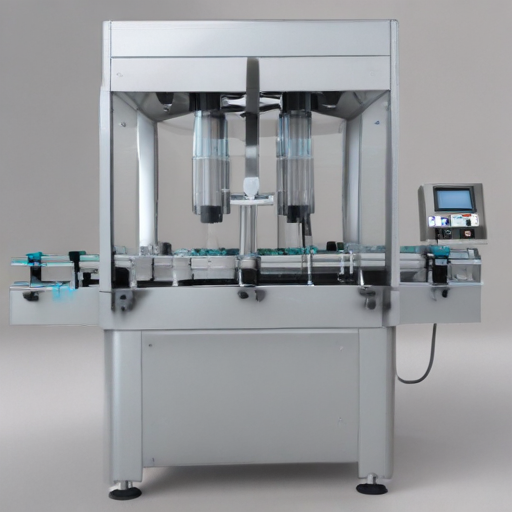
List Various Types of “automatic bottle capping machine”
Automatic bottle capping machines are used to securely and efficiently seal bottles with a range of different caps. There are various types of automatic bottle capping machines available to suit different applications, production volumes, and bottle sizes. Here are some of the most common types:
1. Spindle capping machine – This type of machine uses multiple motor-controlled spindles to tighten screw-on caps to the correct torque. It is popular in industries such as food and beverage, pharmaceutical, and personal care.
2. Snap capping machine – This machine is used for snap-on caps that simply click into place on the bottle. It is commonly used in the beverage industry for products like water and sports drinks.
3. Chuck capping machine – This type of machine uses a chuck to tighten various types of caps, including screw-on, press-on, and snap-on. It is ideal for medium-volume production and can handle various sizes of bottles.
4. ROPP capping machine – ROPP (roll-on pilfer proof) capping machines are used to apply aluminum caps to bottles. They use a series of rollers to press the caps onto the bottles, creating a tamper-evident seal.
5. Corking machine – This machine is designed to insert and seal corks into wine, spirits, and other bottle types. It can handle different sizes of corks and bottles, and the corks can be synthetic or natural.
6. Induction sealing machine – This machine uses an electromagnetic field to create a hermetic seal on bottles with foil liners. It is commonly used in the chemical, pharmaceutical, and food industries.
7. Dispensing capping machine – This type of machine is capable of combining capping and dispensing processes in one unit. It is often used in the cosmetic and personal care industries for products such as lotions and shampoos.
Automatic bottle capping machines can vary in terms of speed, precision, and functionality, making it important for manufacturers to carefully consider their needs before choosing the right machine.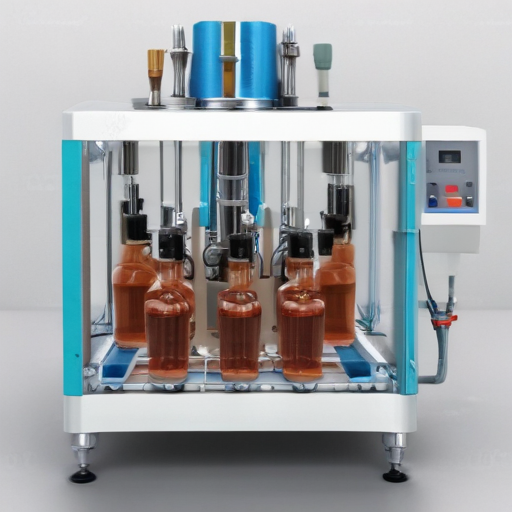
Custom Manufacturing Options for automatic bottle capping machine
When it comes to the custom manufacturing of an automatic bottle capping machine, there are several options available to ensure the specific needs of the customer are met. Here are a few alternatives that can be explored:
1. Material Selection: Depending on the application, the machine can be manufactured using various materials such as stainless steel, aluminum, or plastic. The choice of material will depend on factors like durability, cost, and the type of bottles being capped.
2. Bottle Size and Type: Custom manufacturing allows for the design and construction of machines that can handle bottles of different sizes and types. Whether it is a standard bottle or an irregularly shaped one, the capping machine can be customized to accommodate the specific dimensions and characteristics.
3. Capping Method: There are several capping methods available, including screw-on caps, snap-on caps, and press-on caps. The customization of the machine ensures that the appropriate capping method is employed to meet the specific requirements of the product being bottled.
4. Speed and Capacity: The custom manufacturing of the machine also allows for the adjustment of the speed and capacity. Whether it is for low-volume production or high-speed bottling lines, the machine can be tailored to achieve the desired output efficiently.
5. Integration: The customization of an automatic bottle capping machine can also include integration with other equipment. For example, it can be designed to work seamlessly with a bottle filling machine or a labeling machine, ensuring a smooth production line.
6. Controls and Automation: Custom manufacturing enables the incorporation of advanced controls and automation features that enhance the efficiency and accuracy of the capping process. This can include programmable logic controllers (PLCs), touch-screen interfaces, and sensors for precise control and monitoring.
7. Safety Features: Customization allows for the inclusion of safety features specific to the application and environment. This can include emergency stop buttons, safety interlocks, and guarding to prevent accidents and protect operators.
In conclusion, custom manufacturing options for automatic bottle capping machines offer a range of choices to meet specific needs. From material selection and capping method to speed, capacity, integration, controls, and safety features, customization ensures an optimized solution for the efficient and reliable capping of bottles.
List Quality Control and The Manufacturing Process of “automatic bottle capping machine”
Quality control is an essential part of the manufacturing process of an automatic bottle capping machine. There are several steps in the manufacturing process that must adhere to specific quality control standards to ensure a perfectly functional product.
First, the raw materials used in the manufacturing process must be of high quality. All the materials must be inspected, verified, and approved before being used. Once the raw materials are accepted, they are assembled to form the machine’s components.
The assembly process must adhere to strict standards using specialized machines programmed to maintain precision, accuracy, and speed. The assembly process involves several stages that require constant monitoring, documentation, and testing. During the assembly process, technicians perform regular checks to ensure that all parts are correct and functioning as expected.
Once the machine is completely assembled, it goes through several tests to ensure its functionality is up to standard. These tests include functionality tests, stress tests, and durability tests, which ensure that the machine can withstand the intended use.
The machine is then taken into the final stage, where it is tested on the production line under actual conditions to ensure it performs correctly.
In conclusion, quality control measures are crucial during the manufacturing of Automatic Bottle Capping Machines. Each step of the production process must be monitored, inspected, and tested to confirm the components’ accuracy and functionality. Ensuring strict adherence to quality control measures guarantees that the final product meets the intended purpose and is safe for use.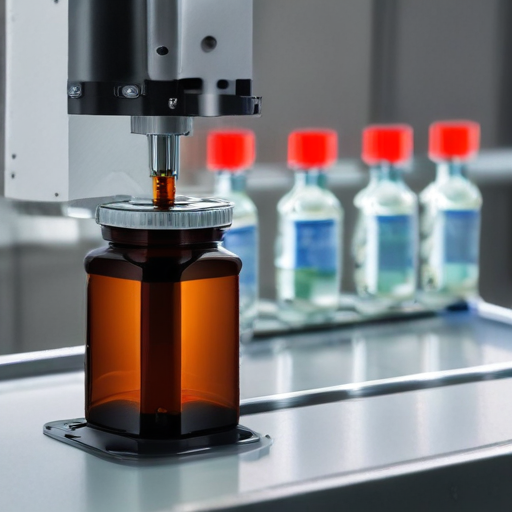
How to use “automatic bottle capping machine”
To use an automatic bottle capping machine efficiently, follow these steps:
1. Preparation: Before starting the machine, ensure that the bottles and caps are ready and properly aligned. Make sure the machine is clean and free of any debris or foreign objects.
2. Adjustments: Set the machine’s capping head to the appropriate size for the bottle and cap being used. Most machines have adjustable settings for different bottle sizes and cap diameters. Ensure the settings are accurate to prevent damage to the bottles or caps.
3. Power on: Connect the machine to a power source and switch it on. Some machines may require additional settings or adjustments, so refer to the machine’s user manual for any specific instructions.
4. Bottle feeding: Place the bottles into the machine’s conveyor belt or feeding system. Ensure that the bottles are properly aligned to prevent jams or misalignment during the capping process.
5. Cap loading: Load the caps into the machine’s cap hopper or supply system. Some machines may have an automatic cap feeding mechanism, while others may require manual loading. Again, refer to the machine’s manual for specific instructions.
6. Start capping process: Once all bottles and caps are in place, initiate the capping process by activating the machine. The machine will automatically cap each bottle as it moves along the production line.
7. Inspection: Periodically check the capped bottles for any defects or issues. Ensure that the caps are tightly sealed, and the bottles are properly aligned and intact. Remove any faulty bottles from the production line to prevent any contamination.
8. Regular maintenance: Clean the machine regularly to prevent any build-up of dirt or debris. Lubricate any moving parts as recommended by the manufacturer to ensure smooth operation. Regular maintenance will help prolong the machine’s lifespan and ensure efficient performance.
Remember to always follow the specific instructions provided by the manufacturer for your particular machine to achieve the best results.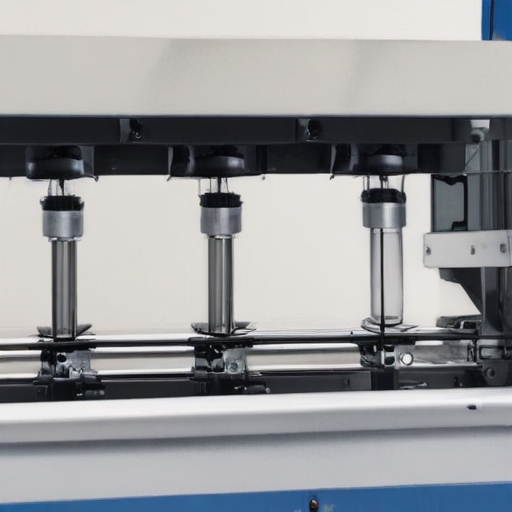
List Properties and Terms of “automatic bottle capping machine”
An automatic bottle capping machine is a specialized equipment used in industries for sealing various types of bottles with caps. It offers incredible efficiency, precision, and convenience, saving time and reducing labor costs. Here are some key properties and terms associated with automatic bottle capping machines:
1. Adjustable Torque: This refers to the ability of the machine to adjust the force applied during the cap sealing process. It ensures that caps are tightened securely without damaging the bottle or causing leakage.
2. Speed Control: Automatic bottle capping machines have variable speed controls, allowing adjustment of the capping speed according to production requirements. This feature ensures consistent and efficient bottle sealing without compromising quality.
3. Cap Compatibility: These machines are designed to work with a variety of cap sizes and types, including screw caps, snap-on caps, snap-tops, push-and-turn closures, and more. They can handle different bottle shapes, sizes, and materials, providing versatility in production.
4. Adjustable Height and Width: The machine offers flexibility in accommodating bottles of various heights and diameters. Height and width adjustments ensure precise alignment of the capping mechanism with the bottle opening, enabling accurate and reliable capping results.
5. Conveyor System: Automatic bottle capping machines often incorporate a conveyor system, allowing a continuous flow of bottles for sealing. The conveyor moves the bottles to the capping station and smoothly transfers them out, improving production efficiency.
6. Cap Detection: Advanced machines are equipped with sensors to detect missing, misaligned, or improperly sealed caps. This ensures quality control and reduces the risk of product damage or contamination.
7. Quick Changeover: The machine is designed for quick and easy changeover between different bottle and cap sizes. This feature speeds up production line setup and minimizes downtime.
8. User-Friendly Interface: Most automatic bottle capping machines have a user-friendly control panel, often with a touchscreen interface. Operators can easily set and monitor capping parameters, adjust settings, and diagnose issues.
9. Safety Features: These machines are equipped with safety measures like emergency stop buttons, safety guards, and interlocks to protect operators from potential hazards during operation.
In conclusion, an automatic bottle capping machine offers adjustable torque, speed control, cap compatibility, adjustable height and width, conveyor system, cap detection, quick changeover, user-friendly interface, and safety features. These properties and terms are vital in ensuring efficient and reliable bottle sealing in various industries.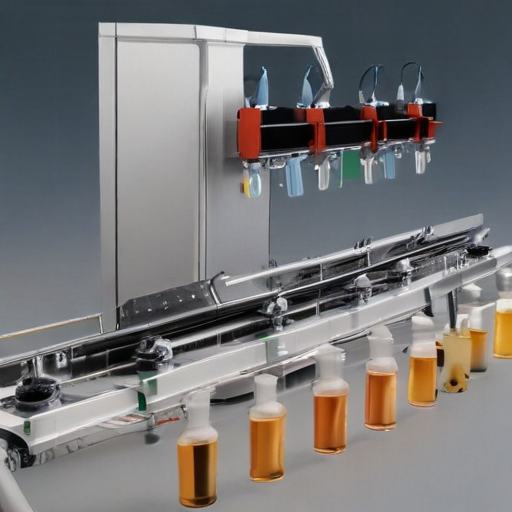
List The Evolution history of “automatic bottle capping machine”
The automatic bottle capping machine has evolved significantly since the early 1900s. Initially, capping bottle caps was done manually, which was time-consuming and labor-intensive. The first semi-automatic capping machines appeared in the late 1800s. These machines were still manual but offered increased efficiency by reducing the required labor and time to cap bottles.
The next significant development occurred in the 1920s when the first fully automatic capping machines appeared. These machines could cap up to 200 bottles per minute and used an electric motor to move the caps and apply pressure for sealing. The machines used a range of capping methods, including snap-on, twist-closure and crown capping.
By the 1970s, technology had advanced further, and electronic controls were introduced to fully automatic capping machines. These allowed for more precise control of the capping process with programmable settings and sensors that could detect inconsistent bottles or caps.
In the 2000s, machine vision systems became more prevalent, allowing for even greater accuracy and speed. These systems use cameras to inspect each bottle and ensure that the cap is applied correctly and tightly. Additionally, modern capping machines are often made from materials that are more durable and hygienic, such as stainless steel.
Today, automatic bottle capping machines can cap thousands of bottles per hour and are an essential part of many industries that rely on bottle packaging, including food and beverage, pharmaceuticals, and cosmetics. They continue to evolve, becoming faster, more accurate, and incorporating new technologies such as robotics and AI to meet the demands of an increasingly automated manufacturing environment.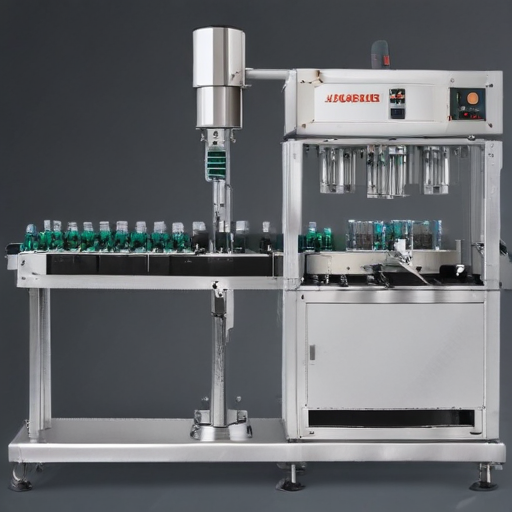
How to Select a Reliable automatic bottle capping machine
When selecting a reliable automatic bottle capping machine, there are several key factors to consider to ensure maximum efficiency and performance. To make an informed decision, follow these steps:
1. Define your requirements: Begin by understanding your specific needs. Consider factors such as bottle size, production volume, cap type, and desired speed. This preliminary evaluation will help you determine the necessary specifications for the capping machine.
2. Research reputable manufacturers: Look for well-established manufacturers with a proven track record in producing high-quality automatic bottle capping machines. Check their reputation, customer reviews, and industry experience to ensure credibility and reliability.
3. Evaluate machine features: Compare the features offered by different machines. Look for features such as adjustable torque control, quick tooling changeover, user-friendly interface, and compatibility with various bottle and cap types. It is important to select a machine that meets your specific requirements and offers flexibility for future needs.
4. Consider safety features: Ensure the machine incorporates safety features such as emergency stop buttons, guarding, and safety interlocks. This will protect both operators and the bottles being capped.
5. Quality assurance and after-sales support: Inquire about the manufacturer’s quality assurance processes and after-sales support. A reliable manufacturer will provide thorough quality checks and offer prompt technical assistance and spare parts availability to minimize downtime.
6. Request a demonstration or trial: Whenever possible, request a demonstration or a trial run of the machine. This allows you to observe its performance firsthand and assess its efficiency, reliability, and ease of operation.
7. Compare prices and warranty: Compare prices from different manufacturers, but take care not to compromise on quality and reliability. Consider the warranty offered with the machine and the possibility of procuring an extended warranty for added peace of mind.
8. Seek recommendations: Seek recommendations from industry peers or experts who have experience with automatic bottle capping machines. Their insights can assist you in making an informed decision.
By following these steps, you can select a reliable automatic bottle capping machine that meets your specific requirements and ensures efficient and hassle-free operations in your production line.
List “automatic bottle capping machine” FAQ
1. What is an automatic bottle capping machine?
An automatic bottle capping machine is a device used to seal containers such as bottles with caps.
2. How does an automatic bottle capping machine work?
The machine uses a motor to turn a series of gears that drive the capping head. The head grasps the cap and places it on the bottle, tightly securing it in place.
3. What types of bottles can an automatic bottle capping machine handle?
The machine can handle a variety of bottle sizes, shapes, and materials, including plastic, glass, and metal bottles.
4. What types of caps can an automatic bottle capping machine handle?
The machine can handle a wide range of cap types, including twist-off caps, snap-on caps, screw caps, crown caps, and pump caps.
5. Is an automatic bottle capping machine easy to operate?
Yes, an automatic bottle capping machine is designed to be user-friendly. It is simple to set up and operate, with intuitive controls that allow the operator to adjust the capping speed, torque, and other settings as needed.
6. Is an automatic bottle capping machine suitable for high-volume production?
Yes, an automatic bottle capping machine is perfect for high-volume production. It can cap hundreds or even thousands of bottles per hour with consistent quality and accuracy.
7. What are the benefits of using an automatic bottle capping machine?
The benefits of using an automatic bottle capping machine include increased production efficiency, reduced labor costs, improved product quality, and enhanced safety.
8. Can an automatic bottle capping machine be customized?
Yes, an automatic bottle capping machine can be customized to meet your specific production requirements. Customizations may include changes in speed, torque, capping head design, and conveyor size.
9. How often does an automatic bottle capping machine require maintenance?
An automatic bottle capping machine requires minimal maintenance. Regular cleaning and lubrication of moving parts, as well as periodic replacement of worn parts, will ensure optimal performance and longevity.
10. Where can I purchase an automatic bottle capping machine?
There are numerous suppliers of automatic bottle capping machines online and locally. It is important to research and compare options before making a purchase to ensure you find a machine that fits your specific needs and budget.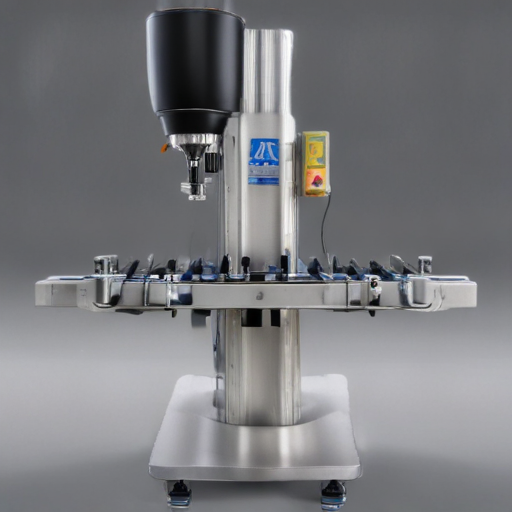
Top 10 FAQ with answer about automatic bottle capping machine for Buyer Sourcing from China
1. What is an automatic bottle capping machine?
An automatic bottle capping machine is a machine that is used to tighten or seal the caps on bottles quickly and efficiently.
2. What types of caps can an automatic bottle capping machine handle?
An automatic bottle capping machine can handle many types of caps, including screw caps, snap caps, and push-pull caps.
3. What is the capacity of an automatic bottle capping machine?
The capacity of an automatic bottle capping machine can vary greatly. Some machines can cap up to 2,000 bottles per hour, while others can cap up to 20,000 bottles per hour.
4. What is the power source of an automatic bottle capping machine?
An automatic bottle capping machine can be powered by electricity, air pressure, or a combination of both.
5. What materials can an automatic bottle capping machine handle?
An automatic bottle capping machine can handle a variety of materials, including glass, plastic, metal, and more.
6. What factors should I consider when choosing an automatic bottle capping machine?
When choosing an automatic bottle capping machine, you should consider factors such as the type of caps you will be using, the capacity you need, the power source, and your budget.
7. What is the price range for automatic bottle capping machines?
The price range for automatic bottle capping machines can vary greatly depending on the capacity, features, and quality. Typically, prices range from a few thousand to tens of thousands of dollars.
8. How can I ensure the quality of an automatic bottle capping machine sourced from China?
To ensure the quality of an automatic bottle capping machine sourced from China, it is important to work with a trusted supplier or manufacturer, conduct thorough research and due diligence, and insist on quality control inspections and certifications.
9. Can an automatic bottle capping machine be customized?
Yes, many automatic bottle capping machines can be customized to meet specific needs or requirements.
10. What after-sales support should I expect from the supplier or manufacturer of an automatic bottle capping machine?
A reputable supplier or manufacturer of an automatic bottle capping machine should provide after-sales support, including technical support, training, maintenance, and repair services.

